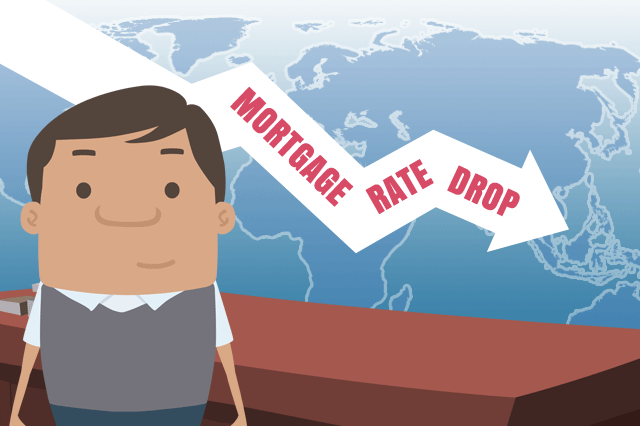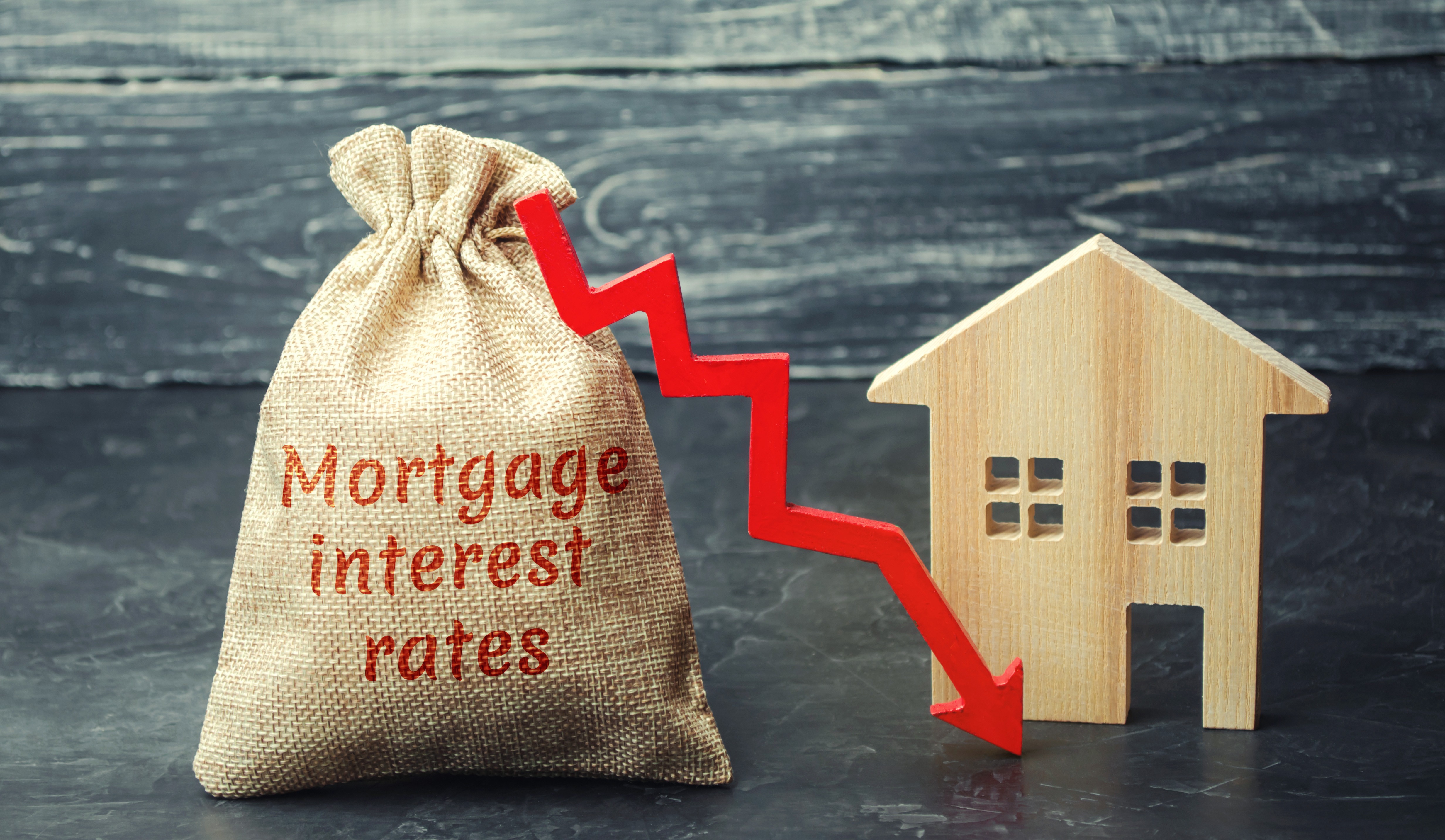Buying a home is one of the biggest financial decisions most people will make in their lifetime. With so many factors to consider, from location to size and amenities, it’s easy to overlook one of the most critical aspects of purchasing a home – the mortgage loan interest rate. Understanding how interest rates work and how to calculate your potential monthly payments is crucial in making an informed decision. In this article, we’ll delve into the world of mortgage loan interest rates and the importance of using a mortgage loan interest rate calculator to estimate your monthly payments.
Mortgage Loan Interest
Before we dive into calculating your monthly payments, let’s first understand what mortgage loan interest is. Simply put, it is the fee charged by lenders for borrowing money. This interest is expressed as a percentage of the total loan amount and can significantly impact the overall cost of your loan. The higher the interest rate, the more you will pay in interest over the life of your loan.
Mortgage loan interest rates are usually expressed as an Annual Percentage Rate (APR). It includes not only the basic interest rate but also any additional fees and expenses associated with the loan, such as origination fees, points, and closing costs. When comparing mortgage loan offers from different lenders, it’s essential to look at the APR rather than just the basic interest rate to get a more accurate understanding of the overall cost.
There are two main types of mortgage loan interest rates – fixed-rate and adjustable-rate mortgages (ARMs).
Fixed-Rate Mortgages
As the name suggests, a fixed-rate mortgage has an interest rate that remains the same throughout the entire loan term. This means that your monthly payments will also remain constant, providing stability and predictability in your budget. Most fixed-rate mortgages have terms of 15 or 30 years, although some lenders may offer different loan terms.
One of the main advantages of a fixed-rate mortgage is that you can budget more easily since you know exactly how much your monthly payments will be. It also protects you from any potential increases in interest rates, which can lead to higher monthly payments with an adjustable-rate mortgage. On the downside, fixed-rate mortgages usually have higher interest rates compared to ARMs, which can translate into higher overall costs over the life of the loan.
Adjustable-Rate Mortgages (ARMs)
With an adjustable-rate mortgage (ARM), the interest rate can fluctuate periodically throughout the loan term based on market conditions. Most ARMs have a fixed interest rate for the first few years, after which it adjusts annually or semi-annually. The initial low-interest rate can be attractive to borrowers, as it means lower monthly payments in the first few years. However, once the rate starts adjusting, your monthly payments may increase if the market rates rise.
There are different types of ARMs, and each has its own set of rules for how and when the interest rate adjusts. These include:
- Hybrid ARMs: These have a fixed interest rate for an initial period, followed by a period where the interest rate adjusts annually or semi-annually.
- Interest-only ARMs: With this type of ARM, you only pay the interest for a specified period, after which both the principal and interest payments kick in.
- Option ARMs: These allow borrowers to choose how much they want to pay each month, including the option for a minimum payment that covers only a portion of the interest. Any unpaid interest is added to the loan balance, potentially leading to negative amortization.
When choosing an ARM, it’s crucial to understand how often and by how much the interest rate can adjust. Some ARMs have caps on how much the rate can increase in any given period, while others have lifetime caps that limit how high the interest rate can go over the life of the loan.
Factors that Affect Mortgage Loan Interest Rates

Now that we have a basic understanding of mortgage loan interest rates let’s explore the factors that influence them. Understanding these factors can help you determine what interest rate you may qualify for and how you can potentially lower your interest rate.
Credit Score
Your credit score is one of the most critical factors lenders consider when determining your mortgage loan interest rate. A higher credit score typically means a lower interest rate, while a lower credit score can result in a higher rate. Lenders use your credit score to assess your creditworthiness and determine the risk associated with lending you money. The higher your credit score, the less risk you pose as a borrower, which translates into a lower interest rate.
According to data from FICO, the average interest rate on a 30-year fixed-rate mortgage for borrowers with a credit score of 760 or above was 2.65% in June 2021. For borrowers with a credit score in the range of 620-639, the average interest rate was 3.94%, almost 1.5% higher. This difference in interest rates can add up significantly over the life of the loan, making it essential to maintain a good credit score before applying for a mortgage.
Down Payment
The down payment you can afford also plays a role in determining your mortgage loan interest rate. A larger down payment means you will be borrowing less money, resulting in a lower interest rate. Lenders may also offer lower interest rates to borrowers who can make a down payment of 20% or more, as this indicates a lower risk for them.
However, not everyone can afford to put down a 20% down payment. In such cases, lenders may require you to pay private mortgage insurance (PMI) to protect themselves in case you default on the loan. This added expense can increase the overall cost of your loan, so it’s essential to consider it when calculating your monthly payments.
Loan Term
The length of your loan term can also affect your mortgage loan interest rate. Generally, shorter loan terms come with lower interest rates, while longer loan terms have higher rates. For example, a 15-year fixed-rate mortgage typically has a lower interest rate compared to a 30-year fixed-rate mortgage. This is because lenders view shorter loan terms as less risky, and they want to incentivize borrowers to pay off their loans sooner.
Mortgage Loan Interest Rate Calculator

With all these factors that can affect your mortgage loan interest rate, it can be challenging to estimate your monthly payments accurately. That’s where a mortgage loan interest rate calculator comes in. A mortgage loan interest rate calculator is an online tool that helps you estimate your monthly mortgage payments based on your loan amount, interest rate, and loan term.
Using a mortgage loan interest rate calculator is simple. You input your loan details, and the calculator provides an estimate of your monthly payments. The more accurate the information you input, the more precise the results will be. Most mortgage loan interest rate calculators also allow you to adjust various parameters, such as down payment, loan term, and interest rate, to see how they affect your monthly payments.
There are several reasons why using a mortgage loan interest rate calculator is essential when estimating your monthly payments:
- Accuracy: A mortgage loan interest rate calculator gives you a better estimate of your monthly payments than a simple calculation. It takes into consideration not only the basic interest rate but also other factors such as taxes and insurance.
- Comparison: With a mortgage loan interest rate calculator, you can compare different loan offers from multiple lenders to see which one offers the best terms for your budget.
- Planning: By knowing your estimated monthly payments, you can better plan your budget and make adjustments to your finances if needed to ensure you can comfortably afford your mortgage payments.
Using a Mortgage Loan Interest Rate Calculator

Now that you understand the importance of a mortgage loan interest rate calculator let’s walk through how to use it effectively. The process may vary slightly depending on the specific calculator you are using, but the basic steps are similar.
- Input Loan Details: Start by entering your loan amount and interest rate into the calculator. If you don’t have an exact interest rate yet, you can use an estimated rate based on current market conditions.
- Add Other Fees: Some calculators may allow you to include other fees such as origination fees or points. If you have this information, add it to get a more accurate estimate.
- Enter Loan Term: Next, enter the length of your loan term, whether it’s 15, 20, or 30 years.
- Include Down Payment: If you know your down payment amount, enter it into the calculator. If not, you can leave this section blank, and the calculator will provide an estimate based on different down payment options.
- Adjust Parameters: Most calculators allow you to adjust various parameters, such as loan amount, interest rate, and loan term, to see how they affect your monthly payments. Play around with different scenarios to find the option that best fits your budget.
- Review Results: After entering all the necessary information, the calculator will provide an estimate of your monthly payments. Take note of any additional fees included in the calculation to get a better understanding of the overall cost of your mortgage loan.
It’s essential to keep in mind that the results provided by a mortgage loan interest rate calculator are estimates and not a guarantee of what you will actually pay. Your actual interest rate may differ from the one used in the calculator, and there may be additional fees that the calculator does not consider. However, using a mortgage loan interest rate calculator can give you a good idea of what to expect and help you make a more informed decision.
Conclusion
In summary, mortgage loan interest rates play a significant role in determining the overall cost of your loan and your monthly payments. Factors such as credit score, down payment, and loan term can all impact the interest rate offered by lenders. Using a mortgage loan interest rate calculator can help you estimate your monthly payments and compare different loan offers to find the option that best fits your budget. By understanding how interest rates work and using tools like a mortgage loan interest rate calculator, you can make an informed decision when purchasing a home and ensure you can comfortably afford your mortgage payments.
wfriv.xyz